Marking the Manchester Collective’s fifth anniversary and the release of their first album, ‘The Centre is Everywhere’, the group’s Music Director and Co-Founder Rakhi Singh reflects on what qualities she values in her musical colleagues
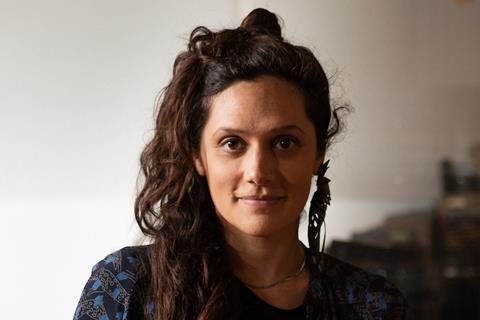
How brave are we, really?
Becoming a classical musician is no easy feat. It requires an Olympic level of sportsmanship, a life-long dedication to self-evaluation and growth in order to stay active, and as I am increasingly aware, a strength of will to prise ourselves away from the clutches of tradition, whilst maintaining integrity and a deep connection to the music we play.
There is undoubtedly much to be discussed around how we educate musicians and crucially, what we are educating them for, but that’s a subject I’m not going to delve into this time around. Instead, I will share with you what kind of musicians we like to work with at Manchester Collective, what we value, and what we hope all of our players and collaborators experience each time they come to work with us.
At Manchester Collective our projects range from the presentation of chamber repertoire through to staged theatrical productions, chamber orchestra concerts, installation work, film projects, studio recordings… the list goes on. We often perform an incredibly wide range of repertoire; we require performers to memorise bits of music, to incorporate movement into a performance and to collaborate with musicians from other genres; and mostly, we work without a conductor.
We know we demand a lot, especially as we often play in venues that lack many of the creature comforts that you might find in traditional concert halls. However, it’s often in these alternative spaces that the magic happens – we are released from the straitjacket of our classical past and are able to take on a new and fresh approach to the music. It’s amazing how the experience of playing for people who are hearing this music for the first time can change your relationship with the material. You start to see, hear and feel new things.
Read Top 11 places to find string music concerts online
Read If you want the industry to change, you have to be willing to enact a change yourself
Watch Abel Salaocoe performs Lamentatio
Whatever context we are playing in, it’s vital to me that every performer in the group feels important, that each person has the space and support to give as much of themselves in their playing as possible. It goes without saying that we are all working within a team, so an awareness of collaboration and team play has to be present. Yet, in a world where so much of what we see, hear, taste and experience is artificial or sterile, I strive to create a rehearsal and performance environment where we are able to draw upon the most sincere and bravest parts of ourselves. To be truly present and to not be afraid.
It’s not an easy tightrope to walk as it takes an incredible amount of dedication to one’s craft from everyone, but perhaps more crucial to this process is forgiveness. When adventuring into new territory, it’s inevitable that there will be mistakes and blunders that happen along the way.
If I recall how many times I was berated during my studies for making mistakes, for having some particular technical weaknesses or for having a memory slip, it saddens me to realise that I still bear the scars of those instances now. I distinctly remember being told by a well-known piano accompanist that I could never be a proper violinist if I couldn’t trill. Looking back, this seems absolutely absurd to me now and only shows me how narrow-minded this person was as a musician and educator, but of course it affected me deeply at the time. This way of educating only made me more fearful of taking risks and I have spent the last 15 years peeling off these layers of trepidation and anxiety. Yet I think many of us unconsciously carry these burdens into our professional lives.
In our organisation I encourage risk taking, to dare to be as in the moment in performance as possible. Obviously, there is a standard of technical competence that is required from each player to even have the freedom to embrace this way of playing, and through this exploration we have realised that there is currently no institution in the UK that has the perfect ingredients for training people in this way. If our work is to flourish and evolve in a changing world, our musical training must rigorously maintain all the essential information from the past that serves us well now, whilst propelling each individual forward with critical thinking, teaching how to self-educate and, most importantly, requiring total commitment to aspects of our imagination and fantasy that makes us individual.
The Manchester Collective’s new album, The Centre is Everywhere, is out today. For more information, click here.

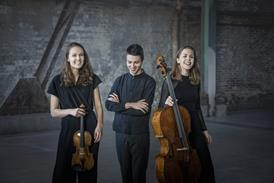
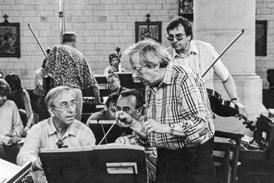
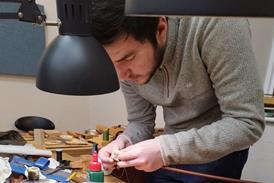
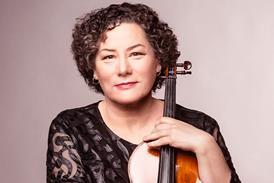
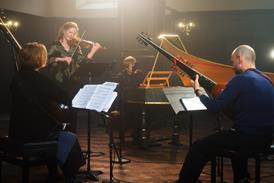
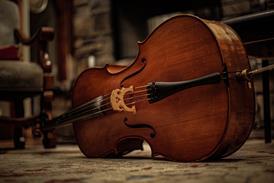
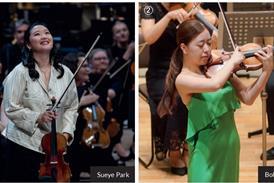

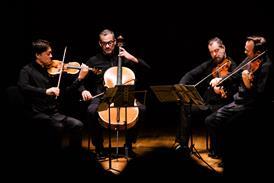

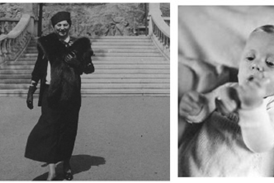
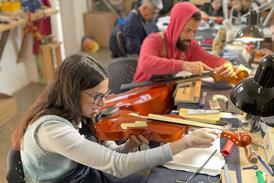

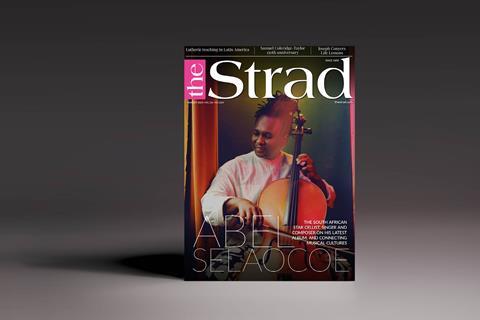




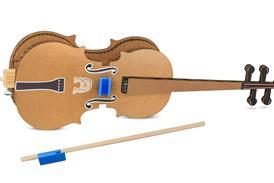


































No comments yet